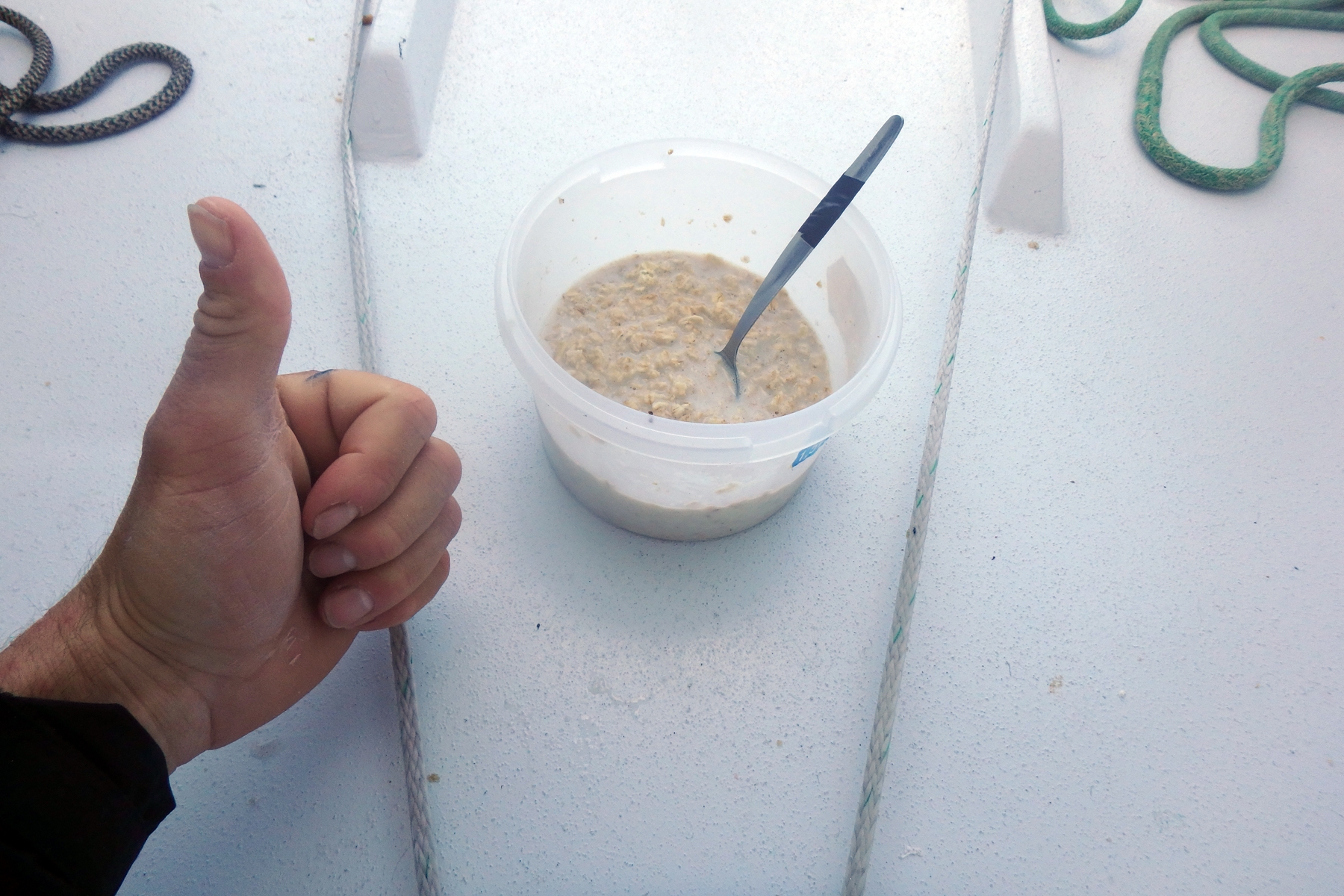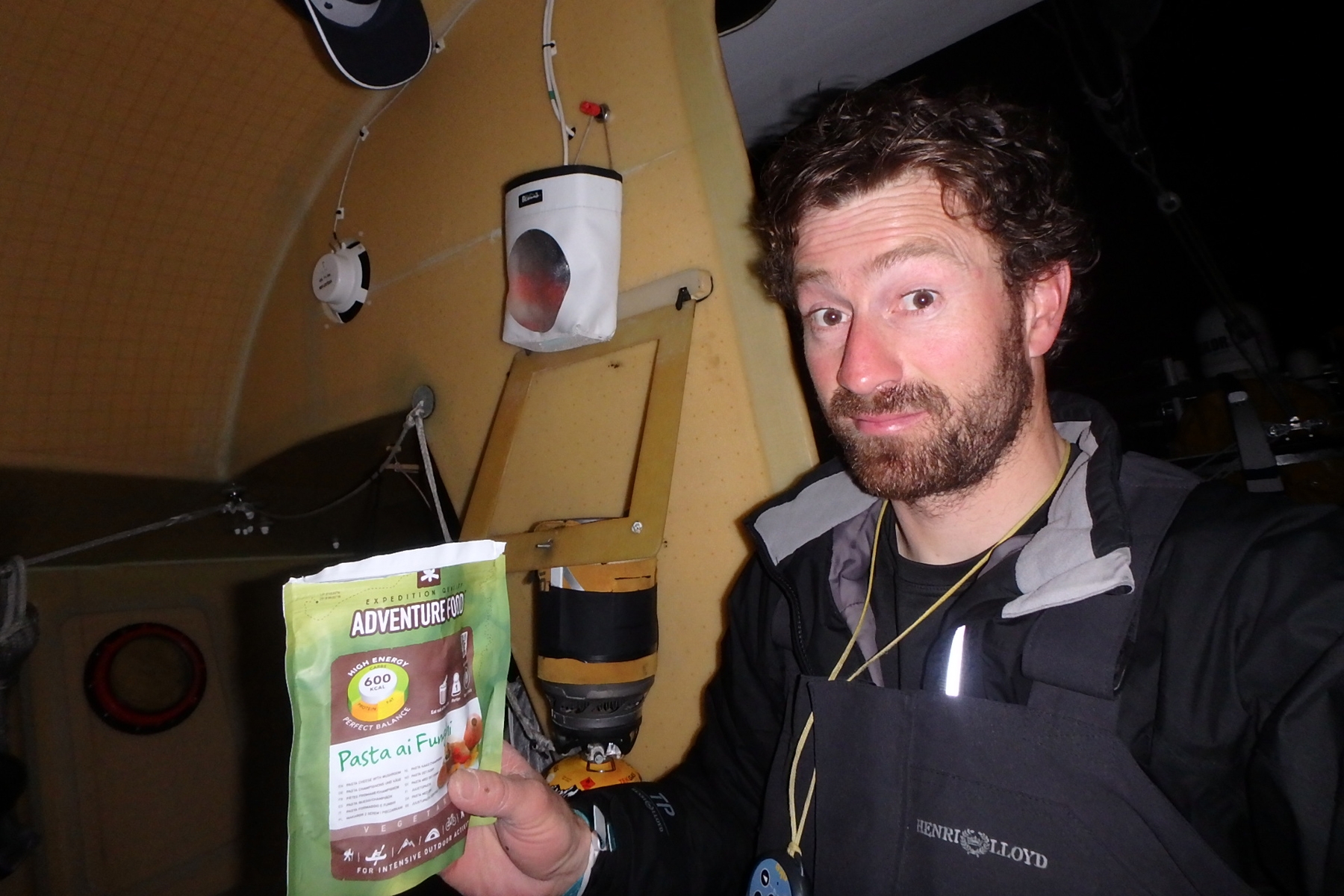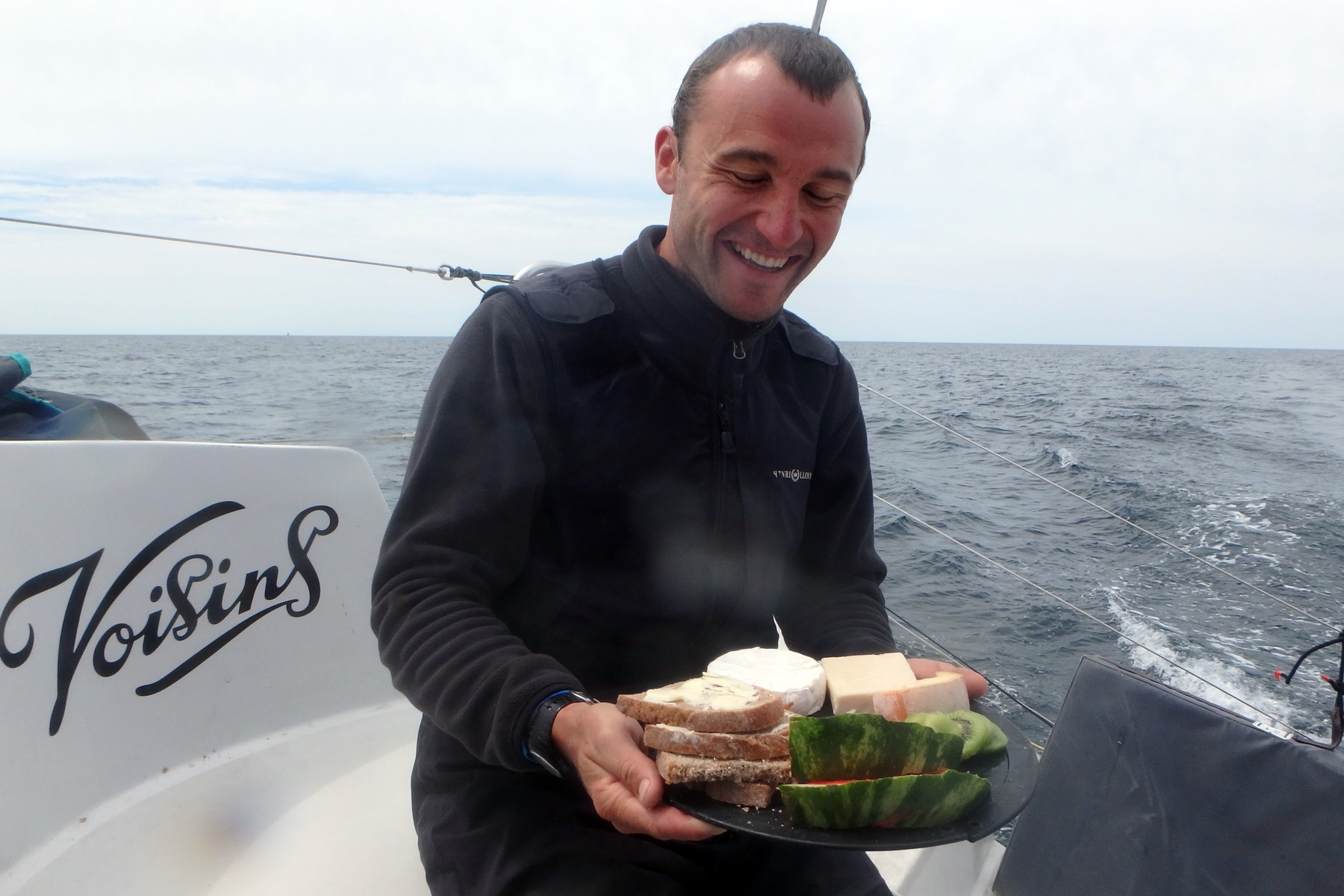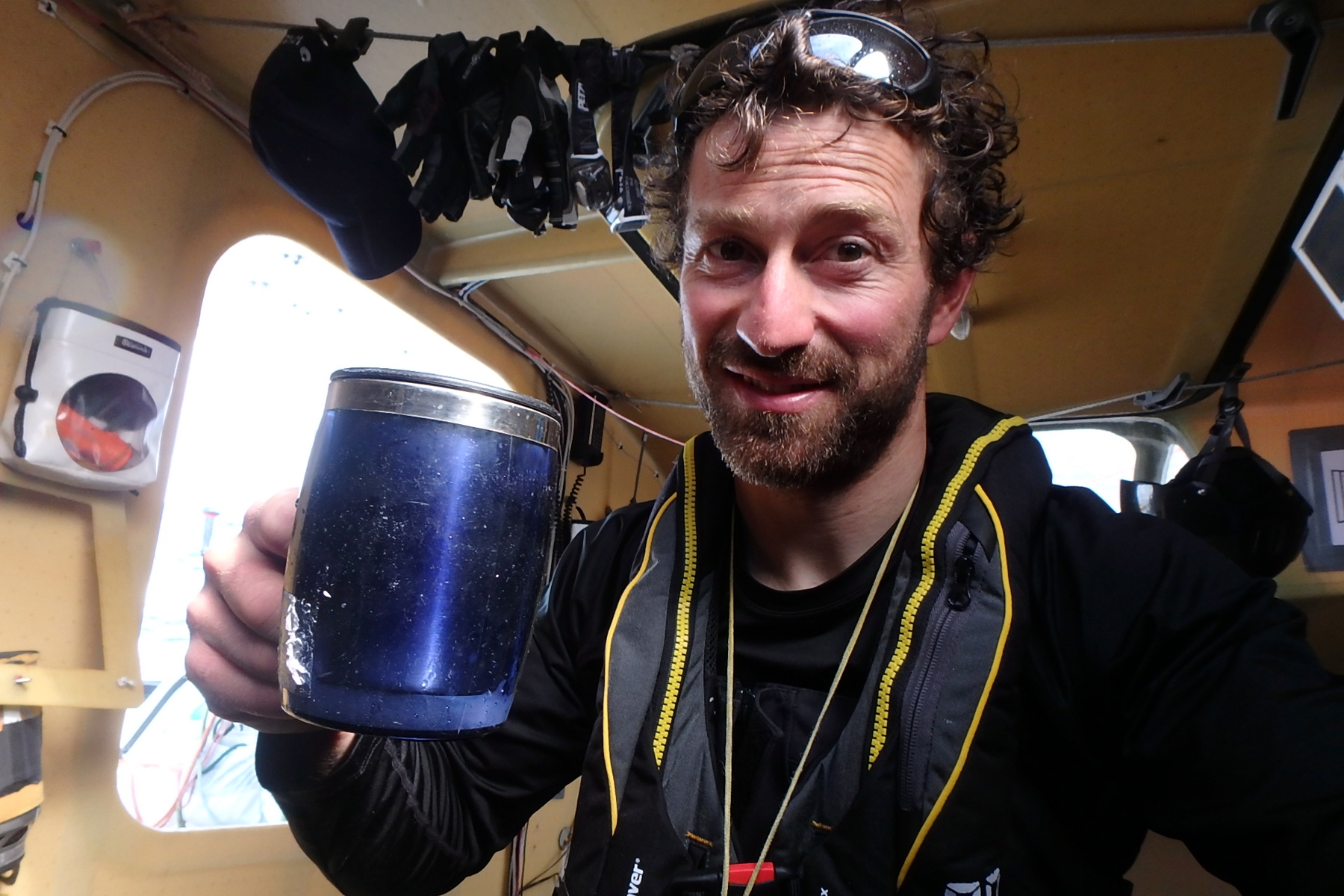Phil’s blog:
Eating the right food on the ocean is critical in a long distance race. Maintaining strength and weight in an extreme environment over a long period of time can be very tricky. Sometimes, in very rough and wet conditions, meals can be the only highlight of the day, so having something that you like and can look forward to, and that gives you a morale boost is enormously important.
Since I started ocean racing about 12 years ago I have tried most things from pot noodles to tinned ravioli, and from multivitamins to protein shakes, and I’ve had some pretty bad experiences. In the past I’ve had chronic stomach cramps or have been totally sapped of energy and lethargic for days.
On one double-handed Atlantic race I did, where I joined another boat, the food shopping for 20 days was done by the skipper’s fiancé who, being a model, weighed very little. She said she had packed “more than enough food” but it was only after we started the race that we realised she had assigned just two smalls bags of nuts and dried fruit for each day – about enough to satisfy a garden sparrow. Needless to say we didn’t have a very nice time for the next three weeks, constantly dreaming of food, and every flying fish or squid that landed on the deck got savaged instantly.
In terms of calorie intake I tend to aim for about 3500-4000 calories per day, depending on the race, and even if things are not too physical you still use a lot of energy since you are awake for longer with sleeping times reduced to 3-4 hours.
To race across the Atlantic on a Class 40 can take anything between 12 and 25 days, depending on the route distance and weather, and even on a boat weighing 4,500 kg, the weight of food and water really adds up over this time. The key to driving weight down is to rely on a desalinator for making water, and then carry mostly dehydrated food. A lot of this expedition food is available in camping shops and provides a good mix of nutrition, but relying on this as a stable diet can really make you bloat and feel tired so it is important to balance this with fresh food early on in the race, while it lasts. There is nothing worse than a step change in diet to something drastically different that you don’t particularly like, so it is important to continue to include something normal in the diet, at least for the first week, like cheese sandwiches!
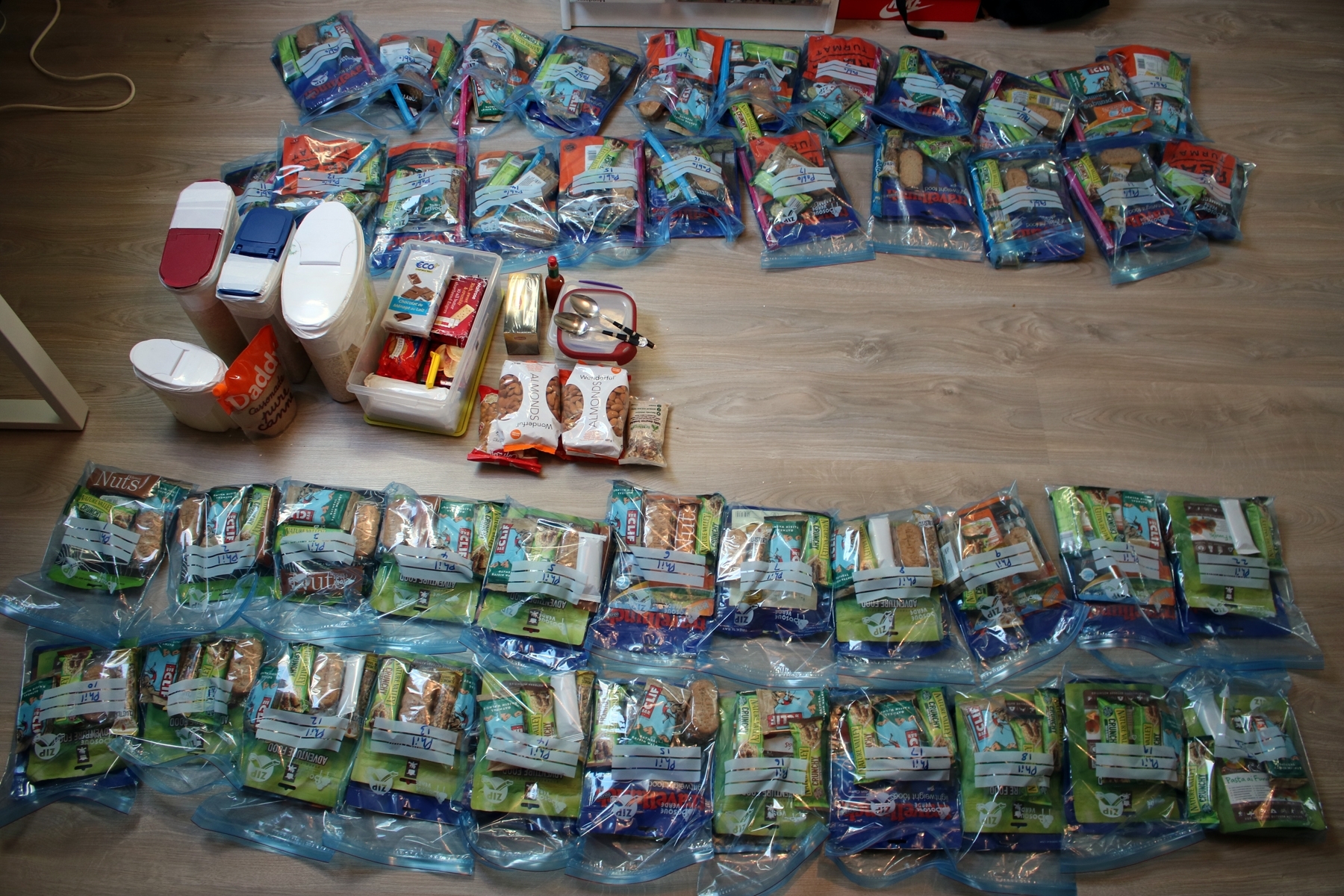
154,000 kcal prepared for the Transat Jacques Vabre © www.philsharpracing.com
Porridge: A great way to start the day and give you some good stodge and is a really quick and easy meal to make. Although you can buy the small pre-packaged instant oats, I am proud to say I have my own concoction consisting of standard porridge oats, dehydrated milk power and brown sugar to which I simply add boiling water and leave for 5 minutes. I can then mix in some nuts and dried fruits if I want. The ingredients, since they are dried, are super light yet the porridge tastes as good as making it on the stove. It also compacts really well in food bags for space efficiency and great to help warm you up after a cold night.
Freeze-Dried Meal Packs: Available in most good camping shops and you simply pour boiling water into the packets and leave for 10 minutes to hydrate. These account for half of my calorie intake, and depending on the brand, can taste really good. There are usually lots of meal varieties, such as pasta carbonara, chicken casserole, beef dumplings and vegetable hotpot. Obviously they don’t taste anything like this in reality. I tend to avoid the meals with meat, as the dried meat chunks might as well be rubber and hence difficult to digest.
Biltong: Very tasty way of getting protein and some key vitamins into you (apparently), with 50-60% protein content which is key for aiding muscular recovery. You can snack on this at the helm even when sailing in the most hellish of conditions.
Cereal Bars: The Nature Valley Crunchy bars and Clif bars taste 100 times nicer than any other cereal bars on the supermarket shelf and good for a semi-healthy calorie boost between meals, or when there is simply no time to boil water and make a meal. During the Cross-Channel Record it was really full-on and the only food I had time to eat were two of these bars during the 9 hour passage from Cowes to Dinard.
Fresh Fruit: Sounds pretty crazy to take onboard when weight is a big driver, but eating an apple or orange a day, at least for the first week, is worth its weight in gold. It keeps you feeling fresh and healthy and with crucial Vitamin C intake to minimise any threat of scurvy that haunted so many expeditions in the past.
Cheese Sandwiches: A simple sandwich is great for maintaining some normal eating habits and getting some bulk down in the way of long-life sliced bread and hard cheese. The cheese lasts the longest, provides some much needed fat as well as protein, although it has a tendency to sweat heavily in the tropics!
Multivitamins: I like going for multivitamins tablets that are very Vitamin C heavy, and way over the theoretical RDA, which always seem to be too low.
English Tea: For me, a diet is never complete without copious amounts of tea, something so effective for getting through long, cold nights, and boosting morale on board. When there is an important strategic decision to me made, or a problem to be solved, I like thinking about things properly over a good brew.
